Consumer aviation website Skytrax has published its latest annual World Airport Awards and for the fourth consecutive year, Singapore’s Changi International Airport took the crown as the world’s best airport. It serves as one of Southeast Asia’s largest transit hubs and is a major cog in the city-state’s bustling economy.
- 10 best airports in Asia in 2016 [RANKED]
- Air travel tips — New research reveals the best day and time to buy airline tickets
- World’s 25 top tourism destinations by Euromonitor
- Traveling from Tokyo to Kyoto — 4 fastest & cheapest ways on how to get to Kyoto from Tokyo
- The reason why you should not throw away your Boarding Pass
“To be named the World’s Best Airport by Skytrax for the fourth year running is a significant achievement for Changi Airport and a clear affirmation that we continue to hit the right notes in our pursuit of service excellence,” Changi Airport Group CEO Lee Seow Hiang said in a statement.
The Skytrax annual rankings are based on the impressions of over 13 million flyers from 106 countries. More than 550 airports were included in the survey, which covers 39 service and performance parameters, including facility comfort, location of bathrooms, and the language skills of the airport staff.
1. Singapore Changi International Airport (SIN)
Yearly passengers: 54 million
Previous rank: 1
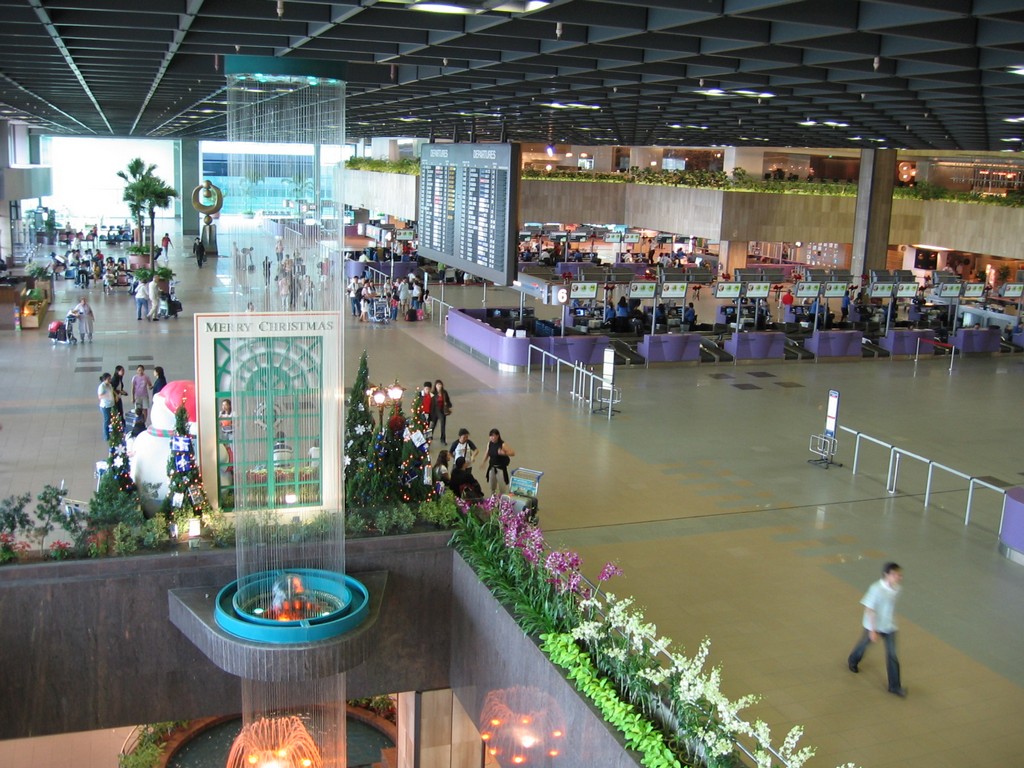
Why it’s awesome: For the fourth year in a row, Changi takes the crown as the world’s best airport. Changi serves as home to Singapore Airlines, Silkair, and Tigerair and is the 16th busiest airport in the world.
The Singaporean airport has received praise from flyers for its beautiful architecture, efficient operation, luxurious amenities, and broad offering of dining and shopping options.
Flyers passing through are treated to movie theaters, a multimedia entertainment deck, spas, and a wild corkscrew slide.
2. Incheon International Airport (ICN)
Yearly passengers: 41.7 million
Previous rank: 2
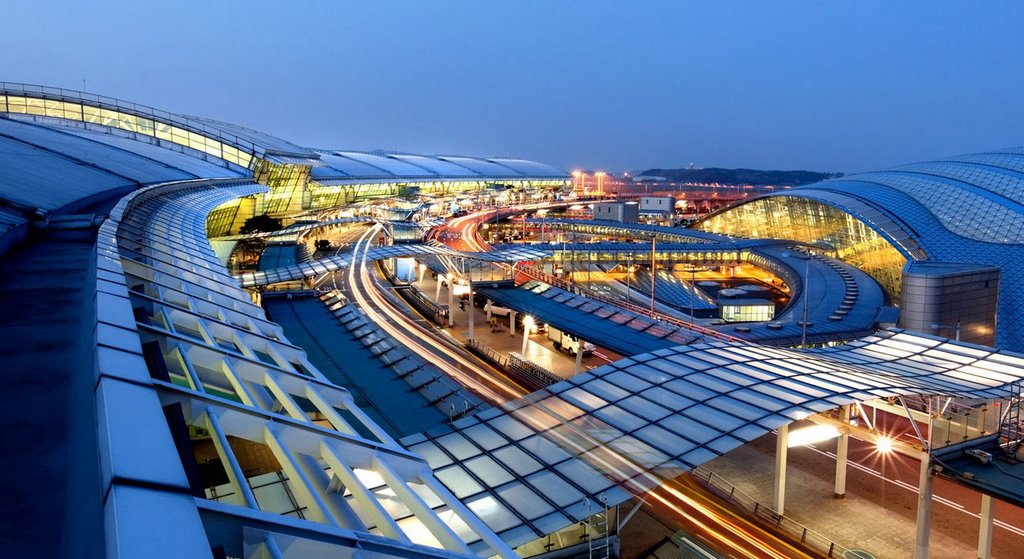
Why it’s awesome: Once again, Incheon is the world’s second best airport. Located on an island just outside of the South Korean capital, Incheon is home base to Korean Air and is the 24th-busiest airport in the world. It opened in 2001.
Incheon’s highly regarded facilities feature an array of shopping and dining options, in addition to a bevy of cultural performances. The airport even has a Korean culture museum.
3. Munich Airport (MUC)
Yearly passengers: 38.7 million
Previous rank: 3

Why it’s awesome: Located northeast of downtown Munich, MUC is one of the busiest airports in Europe and the second-busiest in Germany, after Frankfurt.
Munich serves as a major hub for Air Berlin, Lufthansa, and Condor and it features airy glass-heavy architecture. A nearby visitors park features minigolf and a display of historic aircraft.
4. Tokyo Haneda International Airport (HND)
Yearly passengers: 72.8 million
Previous rank: 5
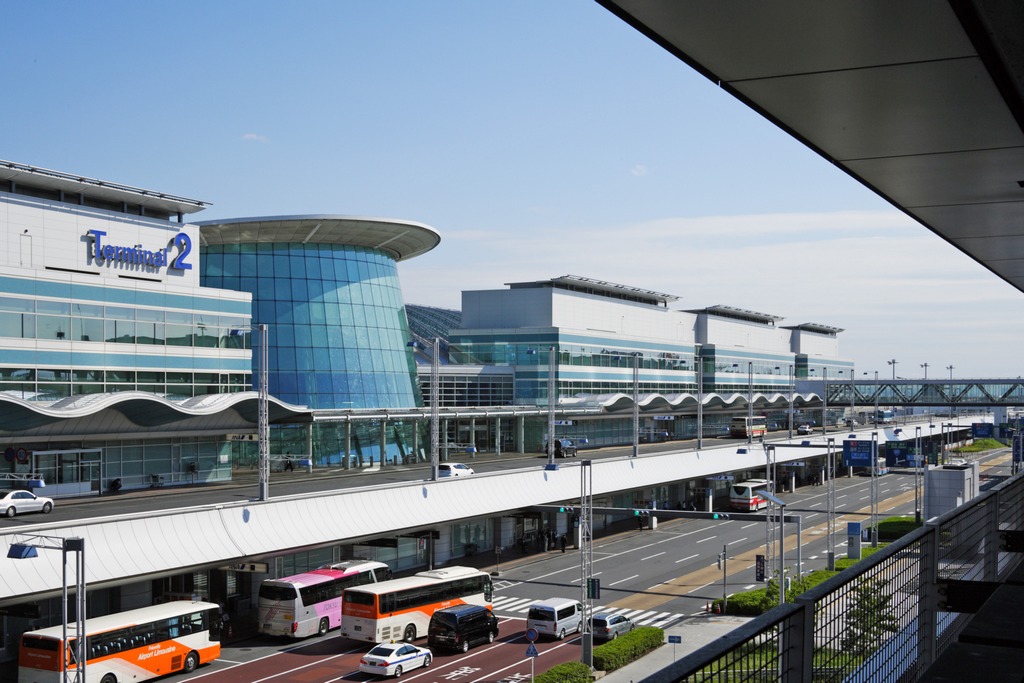
Why it’s awesome: Haneda is one of two major international airports that serve the Tokyo area. Located a few miles away from the heart of the Japanese capital, Haneda has proved to be a popular port of entry for business travelers and tourists.
The world’s fourth-busiest airport, Haneda is know for its service efficiency, cleanliness, and shopping.
5. Hong Kong International Airport (HKG)
Yearly passengers: 63.1 million
Previous rank: 4
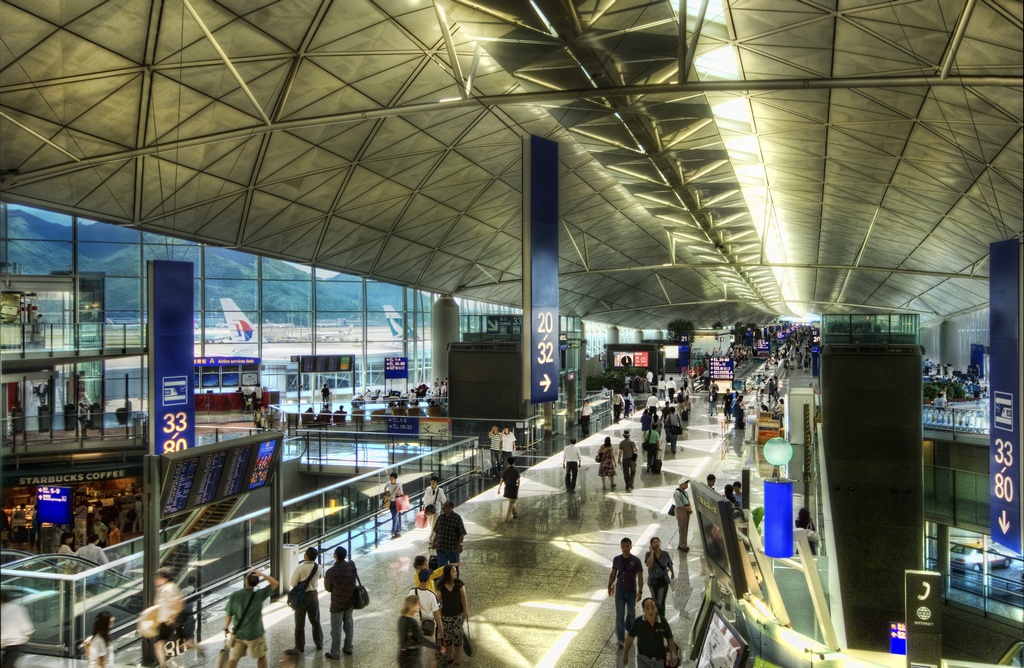
Why it’s awesome: Built on an artificial island off the coast of Hong Kong, HKG has become one of the most popular facilities in the world since it opened in 1998.
One of the busiest airports in Asia, Hong Kong International serves as the home to Cathay Pacific, Hong Kong Airlines, and Dragonair.
Be sure to play a round at the SkyCity Nine Eagles golf course near Terminal 2.
6. Central Japan International Airport (NGO)
Yearly passengers: 9.8 million
Previous rank: 7
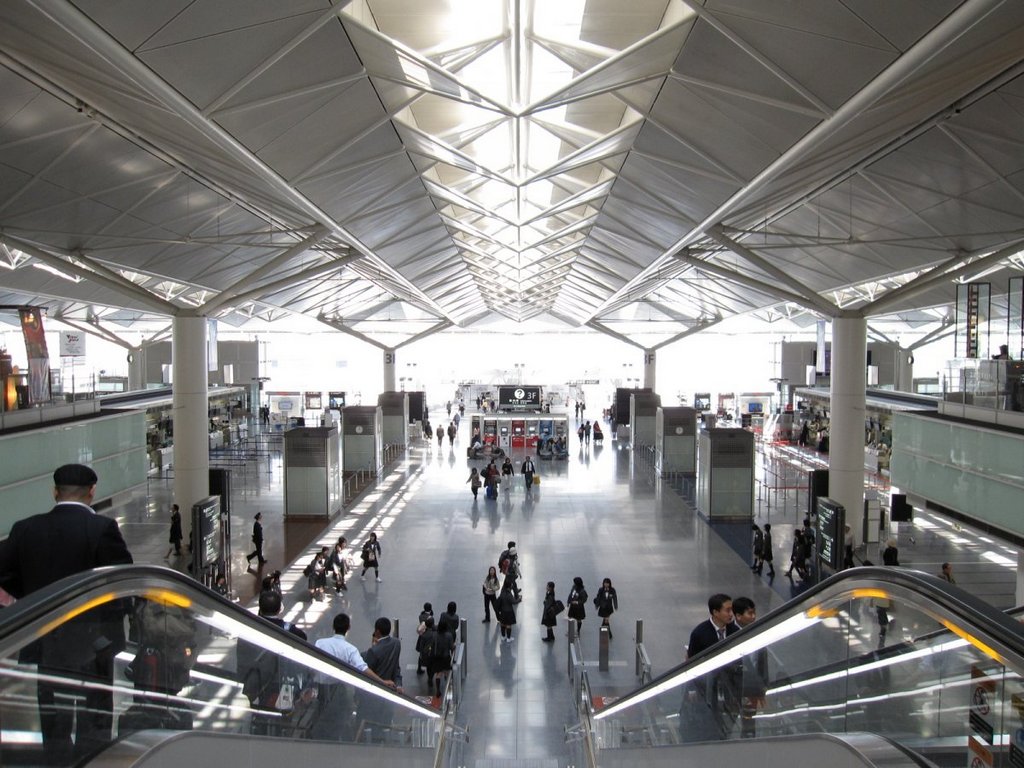
Why it’s awesome: Built on an artificial island in the middle of Ise Bay near the city of Nagoya, Central Japan International — also known as Centrair — serves as a focus city for Japan Airlines and ANA.
Centrair holds the distinction as the best regional airport in the world.
It has a 1,000-foot-long sky deck where passengers can watch ships sail into Nagoya Port. There’s also a traditional Japanese bathhouse where you can have a relaxing soak while watching the sunset over the bay.
7. Zurich Airport (ZRH)
Yearly passengers: 25.5 million
Previous rank: 6
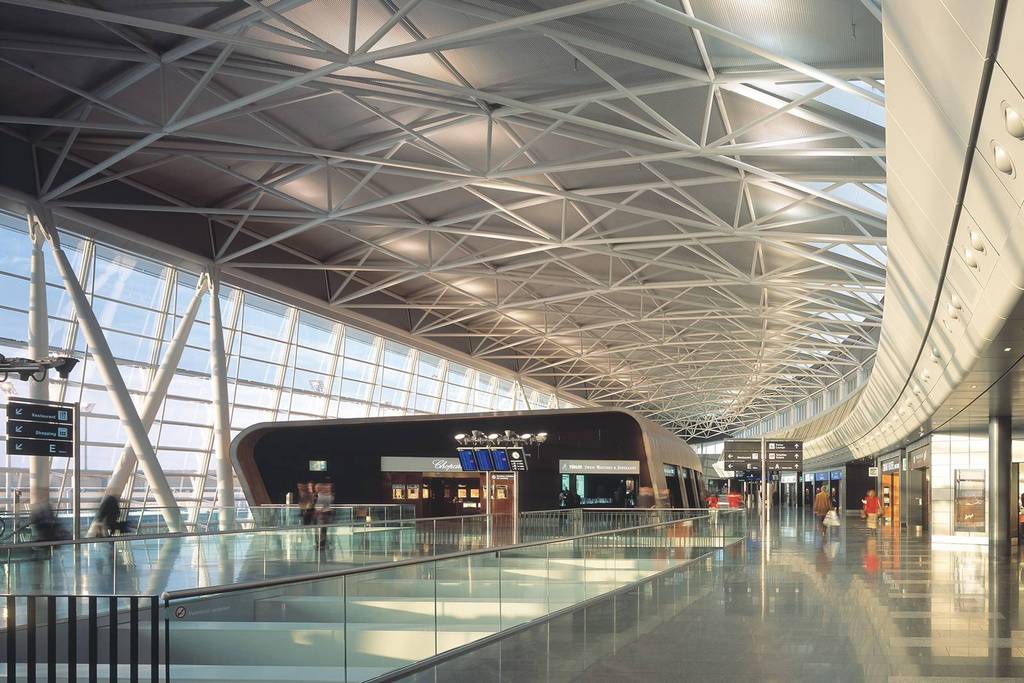
Why it’s awesome: Just eight miles from the heart of Zurich, the airport serves as the home for Swiss International Air Lines and as a hub linking Switzerland’s largest city with the rest of the country.
For passengers with an extended layover, Zurich Airport offers bicycle and inline-skate rentals and excursions to the Swiss Museum of Transport Lucerne.
8. London Heathrow Airport (LHR)
Yearly passengers: 73.4 million
Previous rank: 8
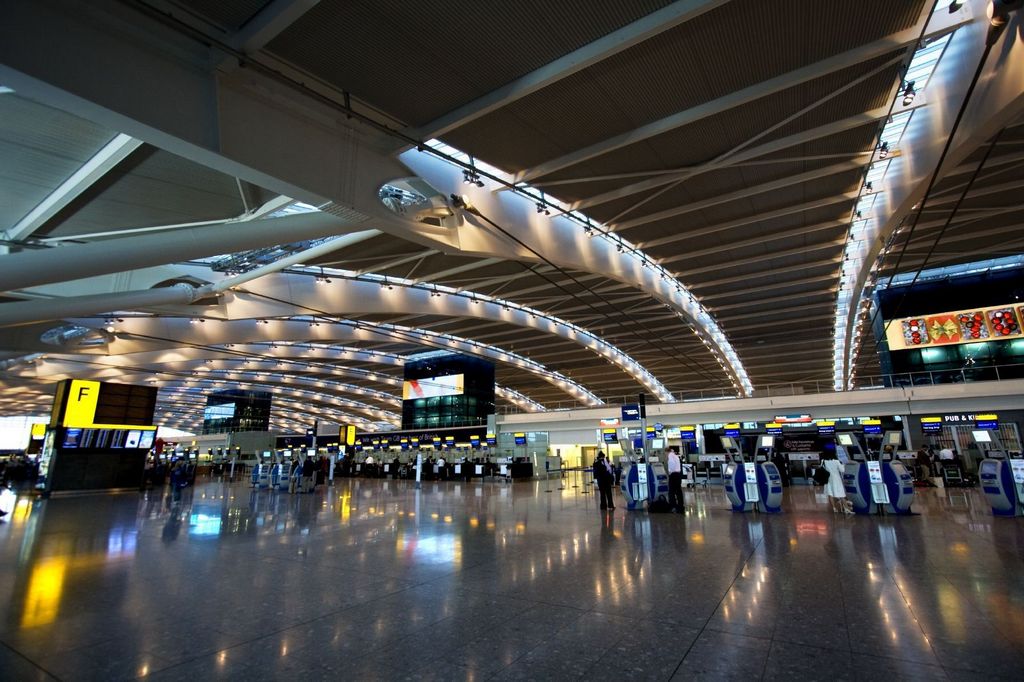
Why it’s awesome: Heathrow is the world’s third-busiest airport and the largest of the five primary airports serving London.
Heathrow is in the midst of a major renovation with the addition of a brand new Terminal 2 building. It’s eight-year-old Terminal 5 building was named the best airport terminal in the world by Skytrax.
Heathrow serves as the main hub for British Airways and Virgin Atlantic.
9. Kansai International Airport (KIX)
Yearly passengers: 20 million
Previous rank: 12
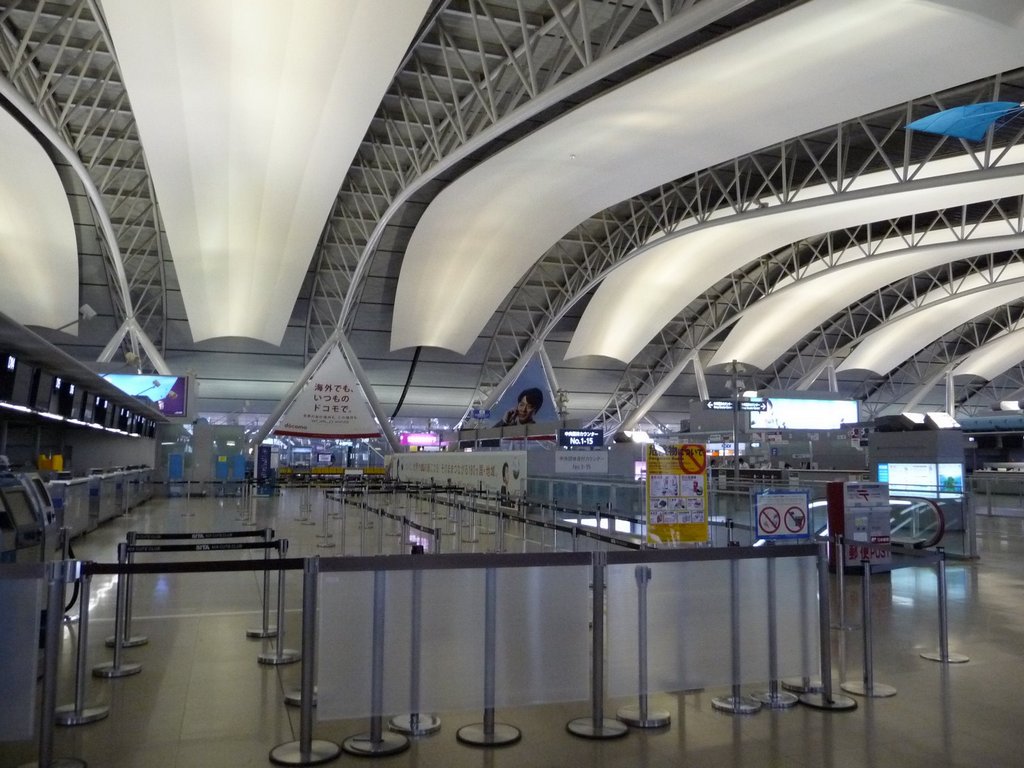
Why it’s awesome: Located on an artificial island in the Osaka Bay, Kansai International is a major hub for ANA and Japan Airlines.
Reviewers on Skytrax praised Kansai for its modern architecture, spotless facilities, and helpful staff. The airport also boasts a Sky View observation deck that affords passengers spectacular views of incoming and outgoing flights.
10. Doha Hamad International Airport (DOH)
Yearly passengers: 30 million
Previous rank: 22
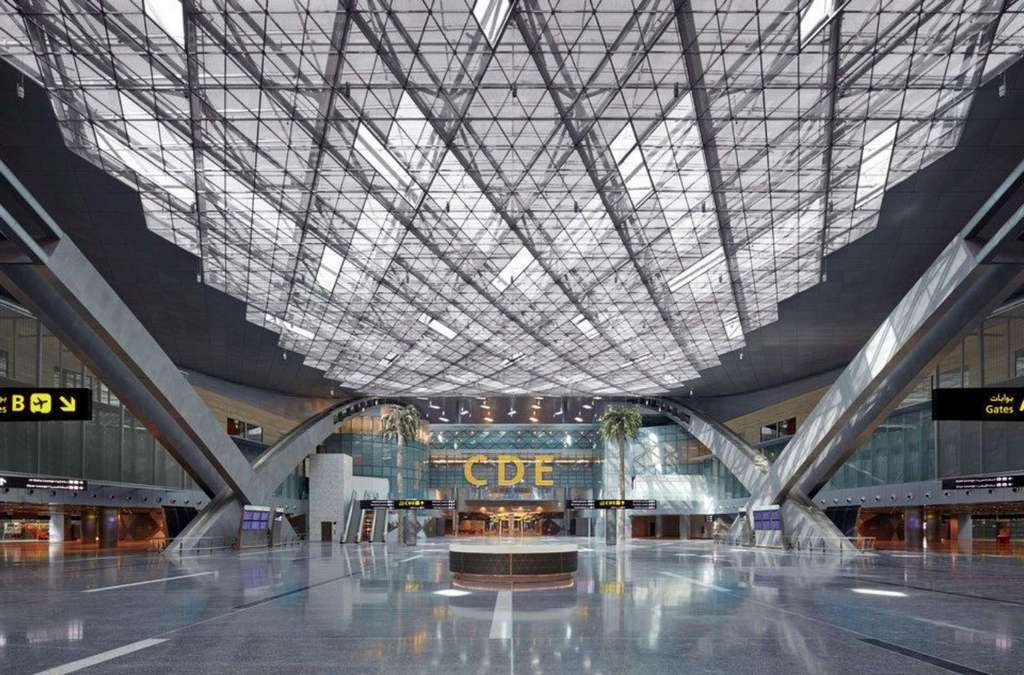
Why it’s awesome: Hamad International opened for business in 2014 and is now home to Qatar Airways.
The airport and its two terminals sit on 5,400 acres of land and cost $16 billion to construct. Skytrax describes the facility as the “the most architecturally significant terminal complex in the world, as well as being the most luxurious.”

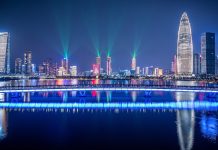












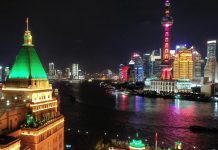
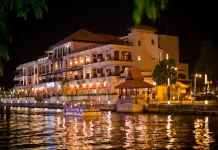

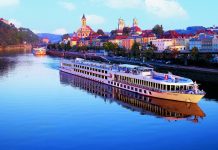









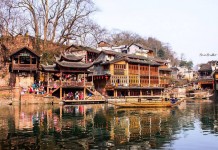





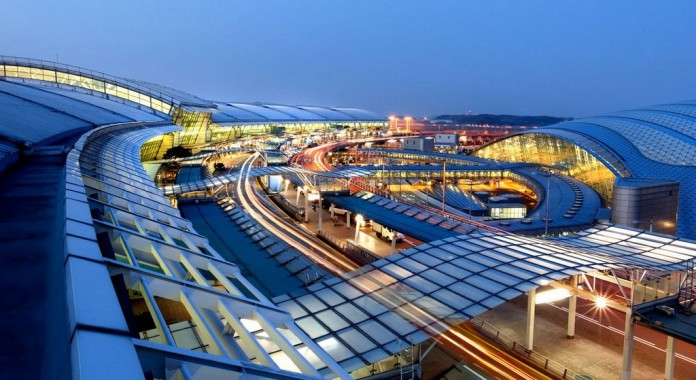



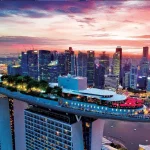




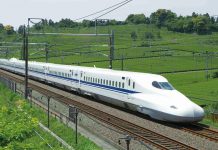

![10 best airports in Asia in 2016 [RANKED] kuala-lumpur-international-airport-best airports in asia in 2016 by skytrax ratings](https://livingnomads.com/wp-content/uploads/2016/08/29/kuala-lumpur-international-airport-best-airports-in-asia-in-2016-by-skytrax-ratings-218x150.jpg)











